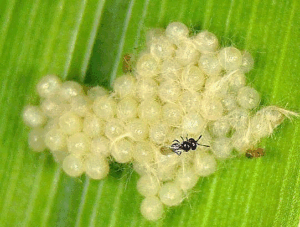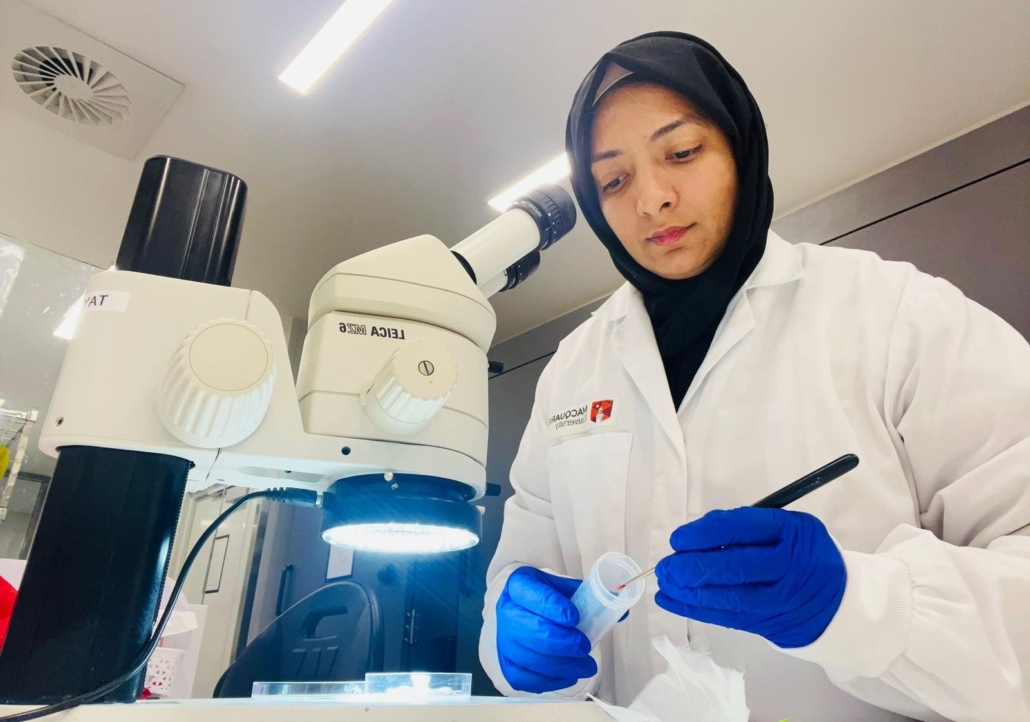PBRI’s Ritman Scholar Explores Biological Control Solutions for Fall armyworm in Australia
Rabia Ali, is investigating sustainable biological control solutions for fall armyworm in Australia under the supervision of Dr Bishwo Mainali at Macquarie University. Current work is focused on understanding how the two parasitoid species interact under different ecological conditions, for example, how they perform when released at varying host egg densities or in different release sequences. These studies are critical to determining the compatibility and efficiency of multiple biological control agents under real-world conditions.
Fall armyworm (Spodoptera frugiperda) continues to pose a serious and ongoing threat to crop production across Australia. Since its detection in northern Queensland in 2020, this highly invasive pest has spread rapidly and established across key grain- and horticulture-producing regions. Growers are facing significant challenges in protecting yields from its destructive feeding habits, with management often requiring repeated interventions.
Currently, control efforts focus on chemical insecticides targeting the larval stages of the pest, after it has hatched from the eggs, and is actively feeding on crops. By this stage, visible damage has already occurred, reducing yield and quality. Heavy reliance on chemicals also brings hazards for applicators and the environment, while increasing the risk of insecticide resistance. With many conventional products proving less effective against fall armyworm, growers are left with fewer sustainable management options.
To fill these gaps and improve outcomes, researchers are increasingly exploring biological control strategies that target earlier life stages, such as the egg stage, before the pest has the opportunity to cause damage.
One promising avenue is the use of egg parasitoids, tiny wasps that lay their eggs inside fall armyworm eggs, preventing them from hatching. Two species of particular interest are Telenomus remus and Trichogramma pretiosum. These natural enemies are already used overseas in the biological control of Spodoptera pests and show strong potential as scalable and environmentally responsible alternatives to late-stage chemical interventions.
This research is generating insights that can inform future integrated pest management (IPM) strategies for fall armyworm approaches that reduce reliance on chemical pesticides, safeguard beneficial insects, and provide growers with more sustainable tools for managing this challenging pest.


